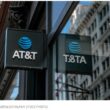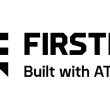Sprint says it’s committed to iDEN
At last month’s International Wireless Communications Exposition (IWCE) in Las Vegas, Dan Gillison, Sprint Nextel‘s national director of state and local public safety, told attendees that the wireless operator is recommitting to its iDEN network and plans to reinvigorate the network, as well as its relationship with Motorola.
“We see the iDEN network being maintained for quite some time; we don’t have an end date,” Gillison said. “We see iDEN as a great network not only for public-safety but also for some or our customers on the consumer side … who want to connect and exchange information rapidly without going through the public telephone switching network.”
Sprint Nextel lost 1.1 million push-to-talk (P2T) subscribers during the fourth quarter of 2008 and started the year with 12.4 million subscribers on the iDEN network, about one-third less than it had at the end of the third quarter in 2007.
“We’ve had quite a bit of churn, but it has slowed down,” Gillison said. He added that CEO Dan Hesse is concerned enough about the churn that he has instructed the company’s chief customer-service officer to figure out why so many have defected from the P2T network.
“We now we have the same person who has been building back up [overall] customer retention and customer growth — the same person who has fixed that — investigating the root causes of our iDEN losses,” Gillison said.
The problem doesn’t appear to be the network, Gillison said. “We had several third parties test the network in the last quarter, and we had the fewest dropped calls ever. So, we think we’re getting better.”
In related news, Sprint Nextel’s legal dispute with iPCS Wireless should not be problematic for the carrier’s iDEN customers, a spokesman with the nationwide carrier said, despite a recent court ruling that requires Sprint Nextel to cease owning its iDEN network next year in territories where iPCS operates.
When Sprint merged with Nextel Communications, iPCS was one of several Sprint affiliate partners that claimed the merger was a violation of Sprint’s affiliate agreements, which granted the affiliates exclusivity of the Sprint brand within their territories. With the Sprint-Nextel merger, the affiliates would be competing against another offering — services operating on the former Nextel iDEN network — within their territories.
Sprint Nextel eventually was able to reach agreements with all of its affiliates except iPCS, which boasts almost 700,000 subscribers in 81 markets in Illinois, Michigan, Pennsylvania, Indiana, Iowa, Ohio and Tennessee. Earlier this year, an Illinois circuit court ruled that Sprint Nextel must cease owning the iDEN network in these territories by Jan. 25, 2010.
But Sprint Nextel CEO Dan Hesse said he does not believe the litigation will create problems for the nationwide carrier’s iDEN customers.
“It’s business as usual for our customers there, and we’re taking all of the actions,” Hesse said during the company’s fourth-quarter conference call in February. “There are alternatives with respect to complying with what happens in the courts.”
Theoretically, Sprint Nextel could divest its iDEN assets in the iPCS territories to comply with the court ruling, but doing so could decrease the value of the rest of the iDEN network, said mobile wireless consultant Andrew Seybold. Moreover, finding a company interested in owning and operating just a portion of the nationwide network operating on iDEN — a technology supported by only one vendor, Motorola — would be difficult, especially in the current economic downturn, he said.
“Standalone networks today — especially with a technology like iDEN — make very little sense,” Seybold said during an interview with Urgent Communications. Seybold also said he does not expect any buyers for the iDEN network to emerge until after the 800 MHz rebanding effort is completed.
Related Stories

















